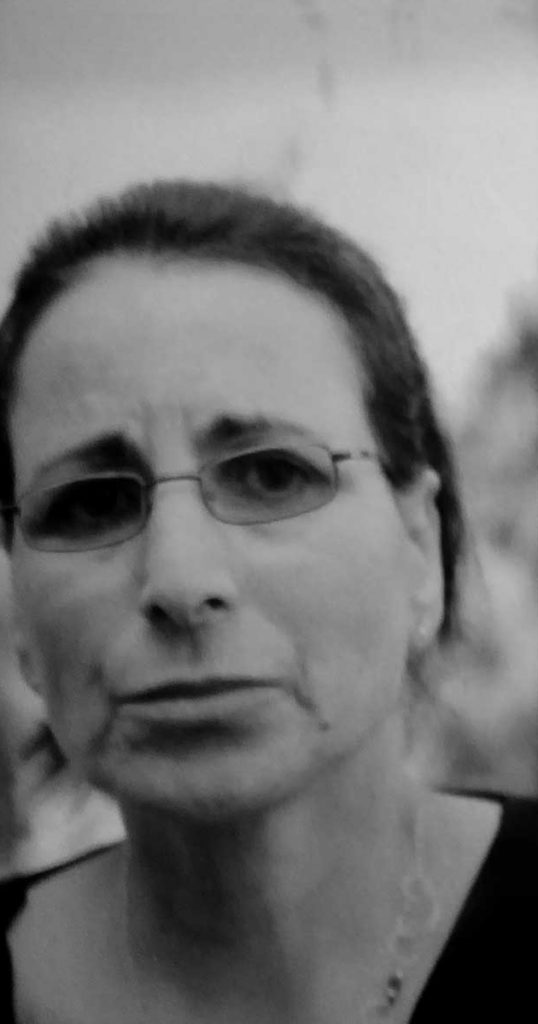
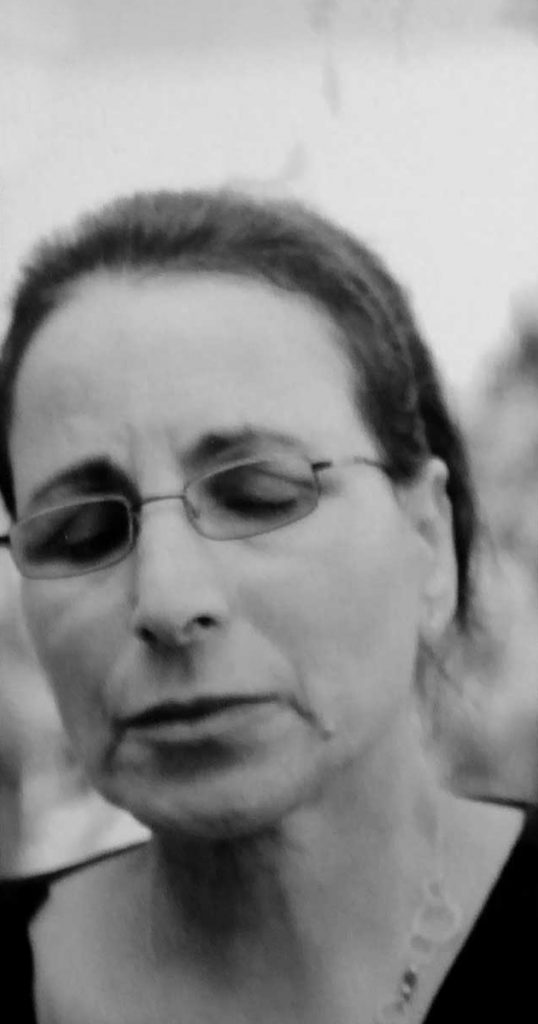
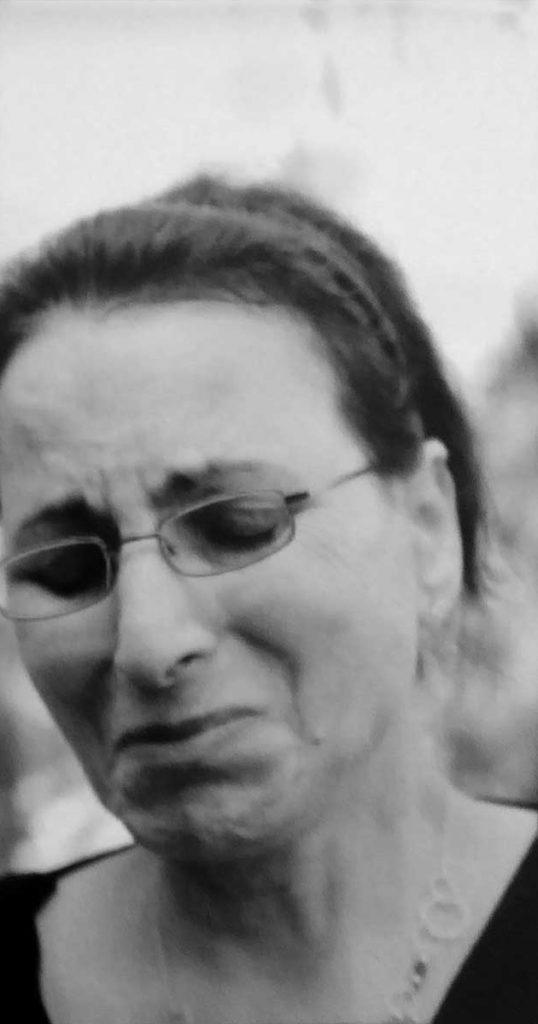
Denke,
wer Du bist, deinen Namen,
Denke,
was die andere Seite dir
angetan hat
Denke,
Kannst du das vergeben?
The Israeli-Palestinian conflict is disheartening. This project deals with the two antagonistic parties, yet without appointing blame to either of them. It goes beyond historical and political circumstances. It is about the HERE and NOW, the individual tragedy that takes place on both sides, the pain, and the hurt caused by one’s neighbour.
It is about forgiveness. Forgiveness is needed on both sides; it is needed always and everywhere, as long as we live. The video deals with men and women who have suffered in similar ways by those, who, for them, were on the other side. Big cities, villages and refugee camps were visited. Fifteen Palestinians and fourteen Israelis were found willing to be filmed. Again and again, there fell the words: „We are waiting to be questioned.“ The most fragile part in the lives of these individuals was touched. For these people, it is not enough to once be mentioned in the news in connection with a dreadful event; they refuse to count for nothing but a number in a set of statistics. They want to live in our minds, along with their fate.
Recalling the events was tremendously painful for all of them and, in most cases, brought tears to their eyes. They did it in order to break their silent grief and bring the death of their loved ones into public awareness: a gesture against the futility and senselessness of death. The victims were parents, daughters, brothers, and – most of all – sons. In some cases, the events had only taken place a few weeks back, in others, years had passed since. Often, an embrace was needed, as a sign of gratitude for taking part in the project, as a sign of sympathy, and as an expression of the closeness and despair we experienced together. The procedure on set was always the same. The guides for the relevant side translated three requests into the national language:
Think, who are you, your name, your origin?
Think, what has the other side done to you?
Think, can you forgive it?
Ingeborg Lüscher 2010
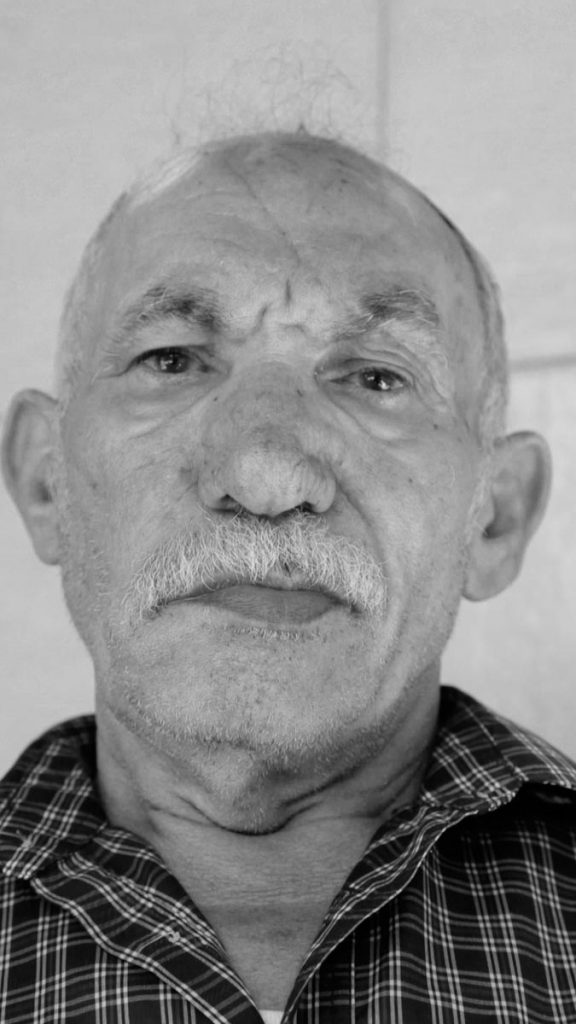
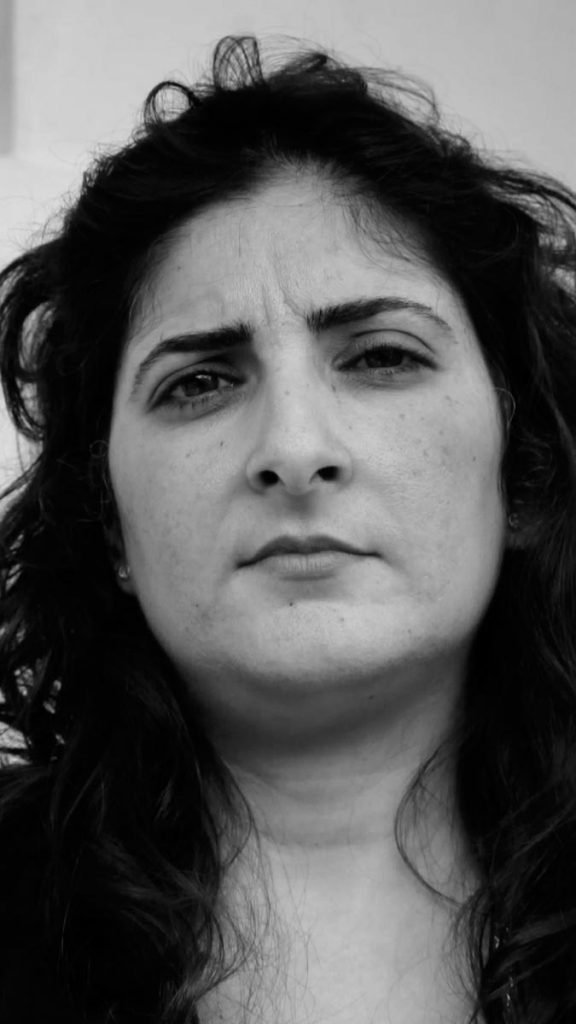
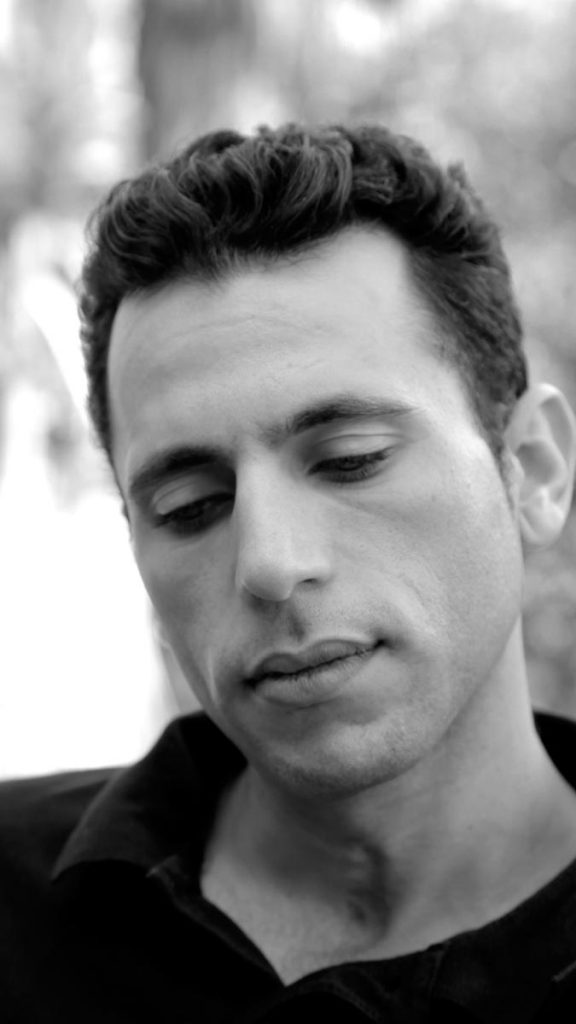
IL926
The Other Side, 2009 – 2010
Die andere Seite, 2009 – 2010
Videoinstallation
3 channel-videoprojection, synchronized, HD 1080p25, b/w, 30 min 20 sec, loop
Concept and direction: Ingeborg Lüscher
General management: Una Szeemann
Camera: Bodahn Stehlik
Editing and post production: Bohdan Stehlik
Producer in Israel: Oren Geller
Producer in Palestine: Nuah Musleh
Production: Ingeborg Lüscher
Distribution: videoart.ch
The Participants from both sides:
Ahmad Ameera, Fat-hi Hasan Ahmad Ameera, Yossi Cohen, Rachel Damari, Ziona Eraki, Zwika Goldmann, Avraham Nedler, Zipi Hendler, Inaam Ibrahim, Fatmeh Kasbeh, Jakov Nagar, Ora nagar, Rina Nagar, Adina Nebenzal, Sara Pikzagi, Yasmeen Ibrahim Quadus, Amneh Ibrahim Abu Rahmeh, Samia Jamal Ramahi, Orly Reuvenov, Rivka Reuvenov, Carmit Ron, Hilly Shiran, Fat-hieh Wahdan, Haleemeh Ibrahim Zaid, Ishira Zaid, Mahamad Ibrahim Zaid, Intisav Raia Mohammad Ziben
The work is dedicated to the death victims of both sides: Atallah Ameera, Offir damari, Samer Sami El-Kasbeh, Yaser Sami El-Kasbeh, Noam Goldmann, Moshiko Hendler, Raed Ibrahim, Roi Jaisch, Eliezer Korman, Arik Nagar, Yair Nebenzal, Drosa Karim Pakisagi, Michael Karim Pakisagi, Mohammad Ibrahim Quadus, Abu Rahmeh, Basem Ibrahim Abu Rahmeh, Ronen Reuvenov, Anat Ron, Avial Ron, Ofer Ron, Adi Shiran, Shimon Shiran, Omar Wahdan, Thaer Ibrahim Shalesh Zaid
With the support of Marianne von Allmen, Balthasar and Vida Burkhard, Stiftung Erna und Curt Burgauer
Thanks to Lila Keis, Jacqueline Lauber, André Marty, Annemarie Monteil, Renata Münzel and Ingrid Staehle
One copy:
Stiftung Situation Kunst, Ruhr-Universität Bochum, 2021
Exhibitions
ZKM Karlsruge 2011. Museum Hamburger Bahnhof, Berlin 2012. Theater im Bauturm, Köln 2013. Stiftung Situation Kunst, Bochum 2013. Psychologenkongress Freiburg 2013. Mühlhausen 2013. Akademie der bildenden Künste München 2013. Museum für Angewandte Kunst Wien 2013. Ascona 2014. Bolognano 2015. Kunstmuseum Solothurn 2016. On Arte, Minusio 2017-2018
Catalogues
Solothurn 2016, pp ?? (ill)
Texts
Müller 2010. Posca 2913, p 293-295 (ill)